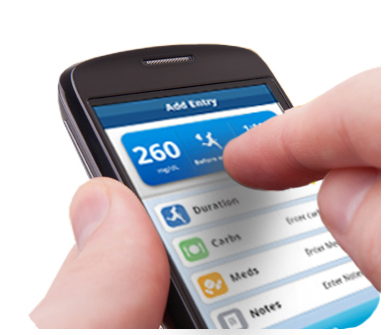 Earlier this week, MobiHealthNews reported on positive – albeit vague – preliminary results from a pilot test of WellDoc's DiabetesManager system among employees of health insurer Health Care Service Corp. (HCSC) who had type 2 diabetes.
Earlier this week, MobiHealthNews reported on positive – albeit vague – preliminary results from a pilot test of WellDoc's DiabetesManager system among employees of health insurer Health Care Service Corp. (HCSC) who had type 2 diabetes.
But what does it really mean that 88 percent of the 156 participants called DiabetesManager "highly useful" for self-management of their condition?
Denise Harper-Saxon, a case management nurse for Chicago-based HCSC, tells MobiHealthNews about the comments she heard from one of the test subjects. "Before I started monitoring, I didn't know what was up or what was down in terms of my blood-sugar reading," Harper-Saxon reports being told.
DiabetesManager provides real-time feedback, coaching and clinical decision support to diabetic patients via mobile phone or Web portal, based on hemoglobin A1C readings, food choices, and physical activity. "Once they understood what was really going on with their blood sugar in the course of a day, we saw that they were becoming more accountable," Harper-Saxon says.
For example, she notes, several participants were happy to learn through the system that regular exercise could help moderate blood sugar and perhaps prevent another trip to the doctor. This not only improves quality of life for the patient, it saves money for the insurance company. HCSC, the largest not-for-profit Blue Cross and Blue Shield licensee, operates Blues plans in Illinois, Texas, New Mexico and Oklahoma.
The DiabetesMonitor pilot marked the first time HCSC has included mobile technology in a disease management program. WellDoc telecommunications partner AT&T provided HCSC participants with their choice of a BlackBerry Curve 8900 or BlackBerry Bold 9700 smartphone or a Nokia 6350 multimedia feature phone, including voice and data plans.
The pilot, which ended in the spring, was to have run for six months. According to Harper-Saxon, participants really wanted to continue, so HCSC, WellDoc and WellDoc telecommunications partner AT&T let it go for 10 months.
HSCS currently is compiling clinical data and deciding whether to expand the program. "I am waiting on a manager to tell me that this is going bigger," Harper-Saxon reports.
During the trial, case managers, all of whom are registered nurses, "were pretty much given free rein" regarding patient contact, Harper-Saxon says.
"My feel for it was I invited people to reach out to me," Harper-Saxon says, but she also initiated contact with patients when she thought it would help. "I sent educational messages to them through the portal if I saw blood sugar was high or low, even though the device does so automatically," she reports. This provides more personalized service, which might prompt immediate action.
It often is hard for case managers to know right away about a patient's life circumstances. DiabetesManager brings more immediacy, according to Harper-Saxon. "If I see something really off the page during the day, I'm going to call right away," she says.
In one instance, Harper-Saxon reports sending a patient a list of options for fast-acting foods to counteract low blood sugar that are more nutritious than the typical piece of hard candy people with type 2 diabetes often take. This led to a frank discussion of the patient's diet and a heartening finding later on.
"She was very tightly diet-managed," Harper-Saxon recalls. "We discussed that she needed to discuss adjusting her meds with an endocrinologist because her blood sugar was better controlled." The woman might otherwise not have considered that she could reduce the dosage of her medications because she was eating well.
"I thought it was an innovative, new way to get in and help our employees," Harper-Saxon says of the whole program.













